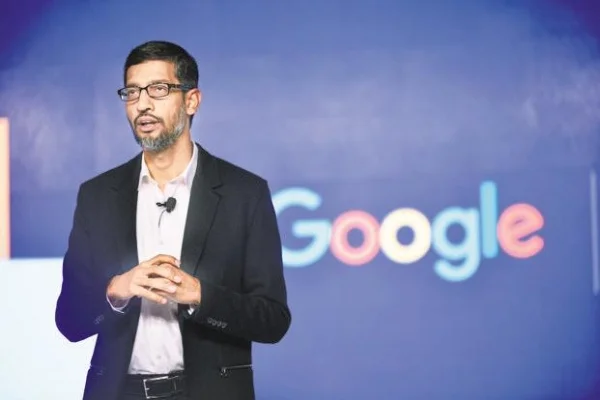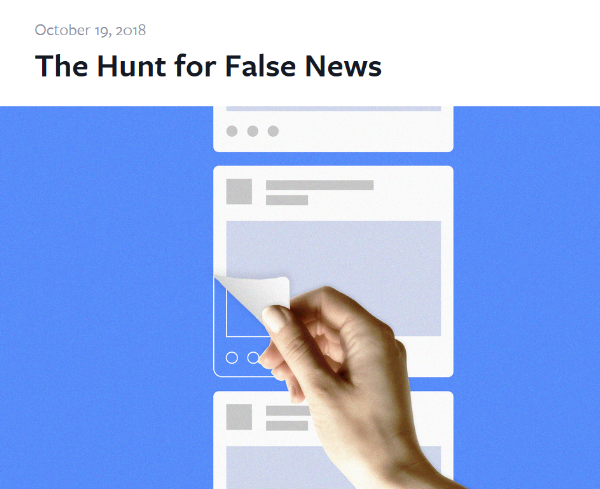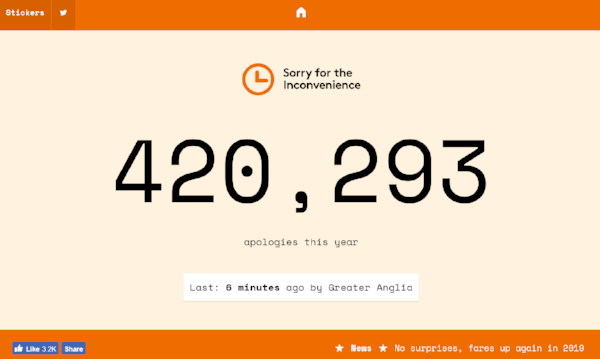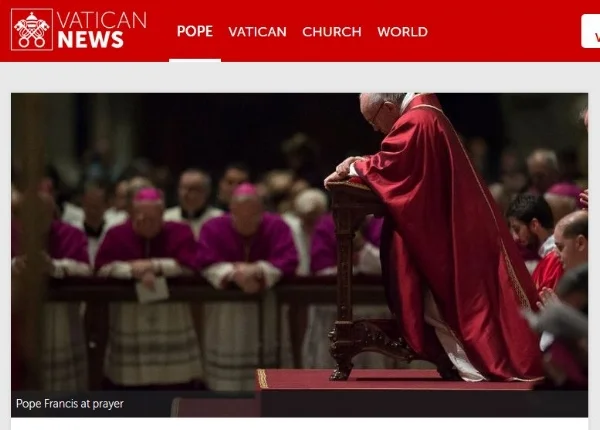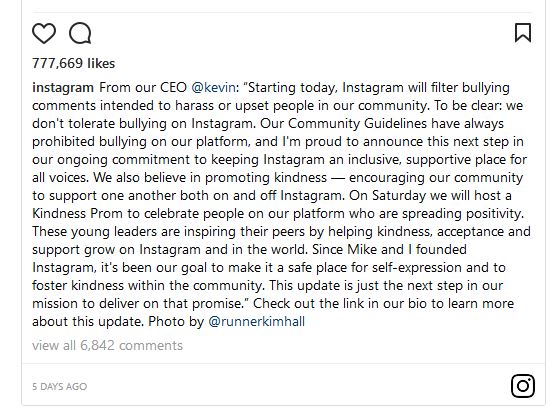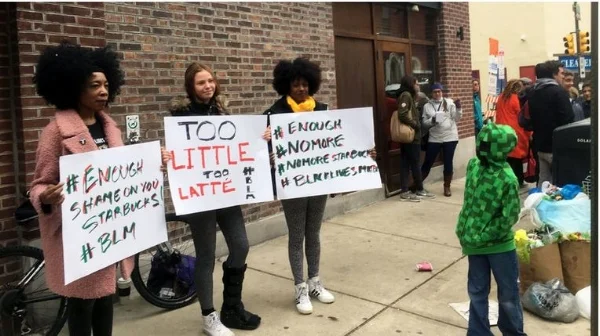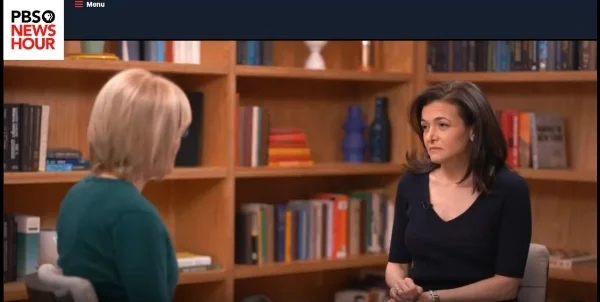Tesla Investigated for Fraud
Tesla is facing a new challenge this week: a U.S. Federal Bureau of Investigation (FBI) criminal probe into whether the company misstated production data and therefore misled investors. The investigation will focus on Model 3 sedans.
A Wall Street Journal article explains part of the issue. CEO Elon Musk tweeted on July 2, 2017, “Looks like we can reach 20,000 Model 3 cars per month in Dec.“ But reports at the time showed a less optimistic picture. The result was only 2,700 cars produced for the entire year.
A spokesperson said the FBI document requests were voluntary and defended the company:
“When we started the Model 3 production ramp, we were transparent about how difficult it would be, openly explaining that we would only be able to go as fast as our least lucky or least successful supplier, and that we were entering ‘production hell.’ Ultimately, given difficulties that we did not foresee in this first-of-its-kind production ramp, it took us six months longer than we expected to meet our 5,000 unit per week guidance. Tesla’s philosophy has always been to set truthful targets –- not sandbagged targets that we would definitely exceed and not unrealistic targets that we could never meet. While Tesla gets criticized when it is delayed in reaching a goal, it should not be forgotten that Tesla has achieved many goals that were doubted by most. We are enormously proud of the efforts of the whole company in making it through this difficult ramp and getting us to volume production.”
Discussion:
What’s your view of Musk’s statement compared to the result: arrogance, entrepreneurial optimism, or something else?
How well does the Tesla spokesperson address the investigation? What else, if anything, should the company say at this point?
In what ways does the company demonstrate a lack of vulnerability in this situation?
Google Admits Sexual Harassment Incidents
It’s been quiet until now, but Google has fired 48 employees for sexual harassment. A New York Times article exposed a number of high-profile departures dating back to 2014, including Andy Rubin, who developed the Android.
Rubin was paid $90 million when the company asked for his resignation, but executives never told the entire truth: that Rubin left because he was accused of sexual misconduct. Instead, then-CEO Larry Page, complimented him: “I want to wish Andy all the best with what’s next,” and “With Android, he created something truly remarkable—with a billion-plus happy users.” Rubin denies the claim and the circumstances of his termination.
In addition to this situation, the Times article cites a number of relationships between senior-level managers and employees. An email from CEO Sundar Pichai and the VP of people operations to staff acknowledges the 48 departures, including 13 “senior managers and above.”
Hi everyone,
Today's story in the New York Times was difficult to read.
We are dead serious about making sure we provide a safe and inclusive workplace. We want to assure you that we review every single complaint about sexual harassment or inappropriate conduct, we investigate and we take action.
In recent years, we've made a number of changes, including taking an increasingly hard line on inappropriate conduct by people in positions of authority: in the last two years, 48 people have been terminated for sexual harassment, including 13 who were senior managers and above. None of these individuals received an exit package.
In 2015, we launched Respect@ and our annual Internal Investigations Report to provide transparency about these types of investigations at Google. Because we know that reporting harassment can be traumatic, we provide confidential channels to share any inappropriate behavior you experience or see. We support and respect those who have spoken out. You can find many ways to do this at go/saysomething. You can make a report anonymously if you wish.
We've also updated our policy to require all VPs and SVPs to disclose any relationship with a co-worker regardless of reporting line or presence of conflict.
We are committed to ensuring that Google is a workplace where you can feel safe to do your best work, and where there are serious consequences for anyone who behaves inappropriately.
Sundar and Eileen
Discussion:
Should Google have been more transparent about the previous departures? Why or why not?
Should the executives say more in the email about the specific departures mentioned in the Times article? Why or why not?
Assess the email for audience analysis, objectives, tone, organization, and style. What works well, and what could be improved?
Which leadership character dimensions does Pichai demonstrate and fail to demonstrate?
Facebook's War on "Fake News"
Facebook has taken several steps to banish incorrect information on the site. The company provides three examples of questionable news items and the action they took, including what they missed.
In some of these situations, stories were doctored with images from related situations. One image, with the caption, “Man from Saudi spits in the face of the poor receptionist at a Hospital in London then attacks other staff,” represents a situation that happened at a veterinary hospital. The post explains, “On Facebook, we’ve seen years-old images of violent acts, protests and war zones reposted and used to inflame current racial or ethnic tensions.”
Another story promised that NASA would pay people $100,000 “to stay in bed for 60 days.” Although this may sound appealing—and it did garner millions of Facebook views—again, this claim referred to an older article in which a journalist was paid $18,000 for staying in bed for 70 days. But the offer no longer stands.
A Standard study reports that Facebook’s efforts are working to reduce misinformation, although we don’t yet see the same effects on Twitter: “Interactions then fell sharply on Facebook while they continued to rise on Twitter.“ A Mashable report explains:
“Mark Zuckerberg and company may be on the right track when it comes to fighting fake news, but as you can see from those engagement numbers, it’s not a success story quite yet. Even with the downward trend over the past 2 years, Facebook is still responsible for much more of the spread of fake news than a social platform like Twitter.”
Discussion:
How do you interpret Facebook’s progress?
Assess the Facebook post. How well is the company taking responsibility and explaining what still needs to be done?
Senators Send Harsh Letter to Google
The U.S. Committee on Commerce, Science, and Transportation sent a strongly worded letter to Google CEO Sundar Pichai. The senators question what the company has done to protect 500,00 users whose profile information was stolen in 2015. Their anger stems from knowledge of an internal memo, cited in a Wall Street Journal article, discouraging disclosure because of fear of “immediate regulatory interest” and the requirement for Pichai to testify before Congress.
In the letter, the senators compare Google’s response to Facebook’s in light of the Cambridge Analytica breach:
“At the same time that Facebook was learning the important lesson that tech firms must be forthright with the public about privacy issues, Google apparently elected to withhold information about a relevant vulnerability for fear of public scrutiny.”
The senators then list specific information about vulnerabilities for Google to provide by October 30.
Discussion:
Read the Wall Street Journal article for more background information. Did the senators respond appropriately? Why or why not?
What is Google’s accountability in this situation? What is the committee’s accountability?
In addition to responding to the senators’ requests, what, if anything, should Google communicate to the public at this point?
Google may have been avoiding its own vulnerability.
British Rail Company Apologies
Great Western Railway is tripping over itself apologizing for thousands of canceled and late trains. Apologies by British train organizations are so common that a web designer created a site, https://www.sorryfortheinconvenience.co.uk, to chronicle statements, now totaling more than 420,000.
A look at the railway’s Twitter feed shows two failures but no apology. Maybe the organization is catching on: over-apologizing isn’t a good strategy. At some point, customers just want problems fixed.
Discussion:
How can a leader know when the organization is apologizing too much?
Take a look at the GWR Twitter feed. How would you advise the organization to improve its communications?
What leadership character dimensions is GWR demonstrating and failing to demonstrate with its apologies?
JD.com CEO Arrested for Sexual Misconduct
Richard Liu, founder and CEO of Chinese e-commerce company JD.com, was arrested in Minneapolis for sexual misconduct. Because of his high profile and billionaire status, Liu’s arrest was the most popular topic of conversation on social media in China last week.
Two people describe a case involving a student at the University of Minnesota, part of a joint doctoral program in business administration with Tsinghua University. Liu was released without bail and has returned to China. He denies any wrongdoing, and JD.com posted a statement in Chinese, translated by a student:
Sunday, Sep. 2, 2018
We have noticed that there are rumors and false accusations about Mr. Qiangdong Liu on Weibo (Chinese social media site, similar to Twitter) recently. We hereby declare as follows: Liu was falsely accused while in the US on a business trip, but the police investigators found no misconduct and that he would continue his journey as planned. The company will take necessary legal action against false reporting or rumors.
Monday, Sep. 3, 2018
So far as we know, Mr. Liu was arrested on Aug. 31, 2018 in Minneapolis for investigation. He was released from custody shortly. There was no accusation or bail required for the release. Mr. Liu has returned to China and will resume his business activities as originally planned.
In addition to the stock price drop and embarrassment this causes Liu and JD.com, the company may have a governance problem. Liu is required to attend board meetings in person (although he may be able to join via video or telephone). Without him, as an 80% voting rights owner, the board may be unable to make decisions for the business.
A New York Times article focuses on China’s fascination with self-made billionaires as celebrities. Online discussions featured photos of Jack Ma laughing at Liu’s trouble.
Discussion:
I don’t see a statement or press release from Liu or from the company in English. Should Liu or the company publish something at this point on the website? Why or why not?
What should the company do now to manage through this crisis?
How does the Chinese reaction compare to situations in the United States? Can you think of a similar situation when Americans were fascinated by a leader’s hardship?
Changes at Riot Games
Following allegations of sexism, Riot Games has apologized and is making changes. A long report by Kotaku placed blame mostly on the fast company growth and sexist working environment.
Trying to shed its “bro-culture” stigma, leaders have acknowledged that the company could be more inclusive. In a long statement last month titled, “Our First Steps Forward,” the company starts by apologizing to “to all those we’ve let down.” The statement then lists steps the company will take around inclusion initiatives, staffing, training, and so on
In a more recent statement, the company announced hiring a “leadership and strategy expert,” Frances Frei, who had also worked with Uber. The statement includes this quotation from Frei:
“After spending time with Riot’s leadership and many others across the organization, it became clear that Riot is truly putting everything on the table and committing to evolving its culture. In my interactions with Rioters, I’ve seen extraordinary levels of engagement on these issues across the company. Every Rioter with whom I’ve met truly cares about inclusion, which means real change is possible. Riot isn’t interested simply in fixing problems on the surface, it has the ambition to be an industry leader and to provide a roadmap for others to follow. I share that ambition and am eager to help Riot navigate this process.”
Discussion:
Read Kotaku’s report. How credible do you find the investigation and reporting? What could increase the credibility?
Assess Riot Games’ statement. Who is the audience and what are the communication objectives? How do the organization, writing style, and tone affect your assessment?
Now assess the statement about Frei. What’s your view of including Frei’s statement? What else, if anything, should be included in the statement?
Overall, how well is Riot Games demonstrating accountability? What other leadership character dimensions are demonstrated?
Disneyland Employees Speak Out
Disney employees are on screen in a New York Times op-ed video, "I Work at the Happiest Place on Earth. Why Can’t I Pay My Rent?" A 30-year concierge and a cosmetologist are featured more prominently. One is currently living in her car, and another says, tearfully, that she has spent time in her car. Both say they love their jobs, but along with 75% of Disneyland employees, they can't afford to pay "basic expenses every month." Data comes from a questionnaire and report, "Working for the Mouse."
The argument is for Disney to pay a living wage, and the call is for citizens to vote for an Anaheim proposal that affects Disneyland employees and some local hotel workers. In the video, one claim is that real wages have declined because of inflation—what $15 per hour bought seven years ago isn't the same today.
Business leaders who are fighting the measure say that the increase would hurt jobs. One local Chamber of Commerce member argued, "We estimate 3-4,000 jobs lost over next year or two by companies having to absorb this new increased cost. They're going to reduce hours and reduce jobs."
Senator and former presidential candidate Bernie Sanders is also featured in the video. He is proposing a bill he calls "Stop BEZOS" to tax Amazon and other large companies for public assistance received by their employees. The idea is for companies with 500 or more employees to pay the government back for support paid to their employees who cannot survive on earned wages.
Discussion:
- How well does the video make the case for higher wages? Which are logical and which are emotional appeals? What evidence is presented?
- Assess the credibility of the questionnaire and report, "Working for the Mouse." From your assessment, what makes the report both credible and questionable? In what ways does the report reflect business communication standards, and in what ways does it fall short?
- Research the impact of raising wages on industry, for example, this Cornell report. What's your view of this argument? It's a complicated question because of different industries, locations, labor supply, rates, etc.
- In what ways do the employees featured in the video demonstrate courage? What risks did they take in appearing on screen?
Pope Francis's Letter
Pope Francis has joined the conversation about sexual abuse in the Catholic church after 1,000 victims and 300 perpetrators were identified by a grand jury investigation report in Pennsylvania. The report also revealed how the church systematically covered up the abuse over a 70-year period.
In an open letter, which is posted on Vatican News, expresses empathy early and often, for example, in this passage:
In recent days, a report was made public which detailed the experiences of at least a thousand survivors, victims of sexual abuse, the abuse of power and of conscience at the hands of priests over a period of approximately seventy years. Even though it can be said that most of these cases belong to the past, nonetheless as time goes on we have come to know the pain of many of the victims. We have realized that these wounds never disappear and that they require us forcefully to condemn these atrocities and join forces in uprooting this culture of death; these wounds never go away. The heart-wrenching pain of these victims, which cries out to heaven, was long ignored, kept quiet or silenced.
Pope Francis's letter follows one by Pope Benedict XVI in 2010, when abuse in Ireland became widely known.
Discussion:
- Compare the two letters. In what ways are they similar and different? How might the circumstance and timing affect each approach?
- How is the letter organized? How would you describe the tone?
- Which character dimensions does Pope Francis demonstrate in his letter?
Airline CEOs Defend Seat Size
American and Delta Airlines CEOs sit in small plane seats to explain the rationale and defend shrinking seat sizes. Doug Parker and Ed Bastian, both 6' 3" tall, agreed to talk to a WSJ writer, while United CEO Oscar Munoz declined.
Both CEOs say they fly coach for short trips. Bastian started a policy that Delta directors must fly coach when traveling less than three hours. Of course, as the article points out, suffering three hours in a small seat isn't quite the same as 24.
The executives say that flight amenities, such as WiFi, make up for any discomfort from smaller seats. American's Parker says that customers don't complain and that the airline hasn't "done anything that makes the main cabin product less desirable than it was before." The airlines are also focused on providing larger seats for higher fares.
Another WSJ article explains what airlines consider when making seats comfortable.
Discussion:
- How does this story illustrate character dimensions such as compassion, vulnerability, and humility?
- Did the CEOs do the right thing by agreeing to participate in the article? What are the risks and benefits?
- Why would United CEO Oscar Munoz decline? Was this the right decision for him and the airline?
- What persuasion tactics do the CEOs use to convince us that flying coach is not so bad?
- Do you agree with the CEOs' assessments about small seats? What has been your experience?
Analyzing Soccer Players' Body Language
Why do soccer players put their hands on their heads when they mess up, a common and seemingly universally gesture. According to Jessica Tracy, professor of psychology at the University of British Columbia, it's an example of vulnerability:
“It’s going to tell others, ‘I get it and I’m sorry, therefore you don’t have to kick me out of the group, you don’t have to kill me.’”
Tracy also describes the connection between the gesture and shame:
“You have the head in the hands — that’s shame. You have the constriction of the body, in the way that the player is moving his arms around his head, almost to make himself smaller. Those are very classical shame display elements.”
In his book, The Soccer Tribe, zoologist Desmond Morris analyzes more aspects of soccer behavior.
Discussion:
- In what ways does the gesture illustrate the value of vulnerability? What do you see as the relationship between shame and vulnerability?
- What other behaviors have you observed in athletes? What do you think they mean?
- How does this story relate to body language in business settings? What gestures have you noticed in a work environment?
Analyzing Communications Around the USC Crisis
After the University of Southern California's president resigned last month, crisis communication experts analyzed university messaging. When a gynecologist was accused of inappropriate exams and comments over decades working for the university, 200 faculty called for President C.L. Max Nikias's resignation. Faculty wrote that they believed Dr. Nikias "has lost the moral authority to lead the University.” Although the Administration denies any type of coverup, the gynecologist was allowed to continue in his job even after many allegations in 2016. Dr. Nikias did resign.
A Wall Street Journal article chronicles the following university communications:
A May 21 statement from university Provost Michael Quick denied university leadership knew of the doctor’s improper behavior, stating: “It is true that our system failed, but it is important that you know that this claim of a cover-up if patently false.” Prior to that, the university issued statements about the matter from Mr. Nikias on May 18 and May 15, and statements from other university officials on May 15 and May 16. University administrators also are contacting students.
Criticism of the communication includes sounding defensive, not completing the investigation quickly enough, and failing to report investigation results to those affected. One writer complimented the statement by the chair of the university's executive committee.
Discussion:
- How does this situation illustrate character dimensions such as vulnerability, accountability, and integrity?
- Read the executive committee chair's statement. In what ways does the statement illustrate authenticity? What other character dimensions are illustrated?
- Assess the university's other statements. What's your assessment of each?
- What should the university do at this point to rebuild trust?
MSU's Denial as a Cultural Issue
A Chronicle of Higher Ed article blames Michigan State University's ambitions and culture for their leaders' lack of response to years of sexual abuse on campus. More than 12 people knew of complaints against physician Larry Nassar, but the abuse continued for years.
Lou Anna K. Simon's leadership is questioned in the article. Although clearly a committed leader to the university, Simon is criticized for focusing so much on "two decades of status-climbing" that a culture of denying any wrongdoing evolved. One of the trustees summed up the issue in a letter and emphasized "We must embrace our obligation to apologize and offer justice."
Apologizing may be a sore subject for the trustees because Simon avoided it in the case of Larry Nassar's victims, according to the Chronicle article:
She talked about how “it is virtually impossible to stop a determined sexual predator and pedophile, that they will go to incomprehensible lengths to keep what they do in the shadows.” She often used “regret,” “sympathize,” and “acknowledge” in her written statements, but not “apologize.” She emphasized that sexual assault is a societal problem, not a Michigan State one. She highlighted all of the steps the university had taken to prevent sexual misconduct.
Discussion:
- Analyze the trustee's letter. What principles of business writing are followed? What are the strengths of the letter, and what could be improved?
- The trustee encourages MSU leadership to listen. What does he mean by this, and how would listening help the situation?
- What is the value of apologizing and admitting failure? What are the potential downsides, particularly for a university trying to improve its stature?
- This story illustrates several failings of leadership character. Which can you identify, and which do you think are most relevant here?
Instagram's New Bully Filter
Instagram has implemented a new technology that will not display comments considered bullying. The program, run by artificial intelligence (AI) technology, can detect “offensive and spammy” comments in English and in at least eight additional languages. Although the filter is set by default, users can "opt out" if they want to see such comments, or they can include specific words to screen out.
In an Instagram post, shown here, and in a longer post titled "Protecting Our Community from Bullying Comments," CEO and Co-Founder Kevin Systrom promised more diligence, particularly to protect young users:
We also believe in promoting kindness — encouraging our community to support one another both on and off Instagram. On Saturday we will host a Kindness Prom to celebrate people in our community who are spreading positivity. These young leaders are inspiring their peers by helping kindness, acceptance and support grow on Instagram and in the world.
Research shows the danger of online bullying: of 2,000 middle schoolers in the study, those who experienced cyberbullying were twice as likely to attempt suicide than those who did not experience cyberbullying.
Discussion:
- Analyze Instagram's announcement of the filter. Who are the audiences, and what are the communication objectives? How well does the message achieve those objectives?
- What's your view of Instagram's response to the problem of cyberbullying? Are the company leaders doing enough, or should they do more?
- How does this news relate to the leadership character dimension vulnerability?
More About the Starbucks Bias Situation
After the arrest of two black men in a Philadelphia store, Starbucks announced that 8,000 stores will close on May 29 for racial-bias training. But are some skeptical about the impact that one day of training will have, and the company seems to be imitating Chipotle's decision to close stores for food safety training. On the other hand, the company could have blamed the employee who called the police, a crisis communication strategy we have seem in many other situations.
An article in the New York Times describes racial bias research in hospitality customer service and may tell us more about the incident in Philadelphia. In one study, researchers sent emails to hotels using different names that reflected gender and race, asking for restaurant recommendations. Responses indicated racial bias, as the authors describe: "Hotel employees were significantly more likely to respond to inquiries from people who had typically white names than from those who had typically black and Asian names."
In addition, researchers analyzed "politeness," for example, whether employees wrote "best" or "sincerely" before signing their name. They were more likely to use such words when responding to guests with names that sounded white, and the authors describe another finding for this group:
They were three times as likely to provide extra information — even when the initial inquiry was just about restaurants — to white than to black or Asian people.
In addition to training, the authors suggest periodic customer service audits and consistent scripts and policies.
In a turn, Philadelphia Police Commissioner Richard Ross has apologized to the two men who were arrested. In his original video, Ross defended the officers actions and said, based on a sergeant's experience at Starbucks, "they are at least consistent in their policy." But in the news conference, Ross says, "shame on me" and "I have to do better."
Discussion:
- What's your view of the research about customer service at hotels? What does the research potentially say about the situation at Starbucks?
- Have you experienced bias in a customer service setting? What was the situation, and how did you handle it?
- How well does Ross handle the apology in the news conference? How does his identity factor into his response? How does he demonstrate authenticity, vulnerability, and other leadership character dimensions?
Starbucks Apologizes, Again
Two black men were arrested at a Philadelphia Starbucks. Witnesses say they were just waiting for a friend and asked to use the restroom. The reason for calling the police seemed to be the same: that they were just waiting for friend. But because they didn't order anything, they were asked to leave and did not. Other customers say this is common at Starbucks, and the only reason the police were called was because the two men were black.
The company, at first, gave a weak apology using unclear pronoun references (see "this" and "these"). A longer apology came from the CEO Kevin Johnson later. In the statement, he identified steps the company would take and closed with this paragraph:
Finally, to our partners who proudly wear the green apron and to customers who come to us for a sense of community every day: You can and should expect more from us. We will learn from this and be better.
Johnson also posted an apology video.
In a video statement, Philadelphia Police Commissioner Richard Ross explained the situation from his point of view and defended the officers' actions. He also said that all officers get implicit bias training and gave an example of a police sergeant who was also denied access to a Starbucks bathroom. Ross's conclusion was that "they are at least consistent in their policy." Of course, not everyone agrees.
Discussion:
- Analyze Johnson's statement. Who are his primary and secondary audiences? What are his communication objectives, and how well did he achieve them?
- What organizational strategy does Johnson's statement illustrate? How do you assess his tone and writing style?
- What is an unclear pronoun reference, and how are they used in the first apology?
- What's your view of the situation? Did Starbucks do wrong? If so, at what point(s)? Are you boycotting Starbucks, as some promote, as a result?
- Which leadership character dimensions are illustrated by this example?
Volkswagen Replaces Chairman
Three years after the emissions scandal, Volkswagen is replacing another chairman. Matthias Müller replaced Martin Winterkorn, who was ousted soon after the news broke in 2015. But Müller was another insider and hasn't led the turnaround the board expected.
Like Winterkorn, Müller struggled with public relations. During a 2016 NPR interview, Müller claimed the company misunderstood the American environmental law: “We didn’t lie. We didn’t understand the question [at] first.” After much criticism, VW’s communications department asked for another interview, which was granted. He delivered a better apology but blamed the first interview on “all these colleagues of yours and everybody shouting.” In other words, it was noisy.
As is customary in corporate change announcements, Chairman of the Supervisory Board Hans Dieter Pötsch spoke positively about the outgoing executive:
“Matthias Müller has done outstanding work for the Volkswagen Group. He assumed the chairmanship of the Board of Management in the fall of 2015 when the Company faced the greatest challenge in its history. Not only did he safely navigate Volkswagen through that time; together with his team, he also fundamentally realigned the Group’s strategy, initiated cultural change and, with great personal commitment, made sure that the Volkswagen Group not just stayed on track but is now more robust than ever before. For that, he is due the thanks of the entire Company.”
The new chairman, Dr. Herbert Diess, offers more hope. Diess joined the board in 2015 and is known for having conflicts with the union and for cost-cutting. He may shake up the status quo at VW and inspire real action. The company has aggressive plans, including building greener cars—for real this time.
Image source (VW cover).
Image source (Diess).
Discussion:
- Assess the company's statement about this change. Who are the primary and secondary audiences? What are the communication objectives? How well does the statement meet those objectives?
- Why do these statements typically include positive quotes about outgoing executives, even if they are asked to leave or, as this statement indicates, they leave "by mutual agreement"?
- What lessons do you think Volkswagen learned since the scandal?
- Why would the board appoint someone who is considered divisive?
Mariah Carey Talks About Having Bipolar Disorder
In 2001, singer Mariah Carey learned she had bipolar disorder, and now she is admitting it to the world. In an People magazine cover story, Carey talks about her initial denial and her decision to open up about her diagnosis:
“Until recently I lived in denial and isolation and in constant fear someone would expose me. It was too heavy a burden to carry and I simply couldn’t do that anymore. I sought and received treatment, I put positive people around me and I got back to doing what I love — writing songs and making music.”
“I’m just in a really good place right now, where I’m comfortable discussing my struggles with bipolar II disorder. I’m hopeful we can get to a place where the stigma is lifted from people going through anything alone. It can be incredibly isolating. It does not have to define you and I refuse to allow it to define me or control me.”
Bipolar disorder, also called manic-depressive disorder, affects about 5.7 million adults in the U.S., which is about 2.6% of the population.
Reactions to the news seem mostly positive, with comments such as this on Twitter:
This story reminds me of a TedX talk, "Everyone Is Hiding Something" about a woman's struggle with an eating disorder.
Discussion:
- What are the potential personal and professional consequences to Mariah Carey of going public with her diagnosis?
- What do you hide about yourself that might be useful for others to know?
- What is the value of admitting personal struggles in the workplace?
- How does Mariah Carey's story demonstrate leadership character dimensions, such as courage, compassion, authenticity, and vulnerability?
An Interview with Sheryl Sandberg
During an interview with Judy Woodruff on PBS NewsHour, Facebook COO Sheryl Sandberg admitted mistakes and discussed plans for improving users' privacy. Sandberg didn't shy away from tough questions about Facebook's role in protecting users' information and admitted that the site had an important role during the 2016 presidential election, at least to get people to register to vote.
On whether Cambridge Analytica still has data, Sandberg admitted, "We were given assurances by them years ago that they deleted the data. We should’ve followed up. That’s on us. We are trying to do a forensic audit to find out what they have." She also said the company had "under-invested" in ways to protect users' information.
Viewers may notice that Sandberg repeatedly says versions of "That's a very good question." This could be a tactic to delay responding, or it could be that Woodruff asks good questions! Sandberg would be the first to acknowledge that many of the questions are ones the company leaders are asking themselves at this point. As pioneers, Facebook executives are reconsidering how people use the site and for what purpose.
Discussion:
- Assess Sandberg's presentation skills. How well does she deliver her ideas and address questions?
- What principles of persuasion does Sandberg demonstrate in the interview?
- What else, if anything, could Sandberg have said during this interview to rebuild trust in the company?
Mario Batali Wants to Move On
Is it too soon? Mario Batali, accused of sexual harassment and removed from the company bearing his name, is exploring a new venture. In December, reports of sexual misconduct rattled the Batali & Bastianich Hospitality Group, and Batali admitted that accusations “match up with ways” he behaved. At the time, he emailed an apology but lost ground when he included a "P.S." with a recipe for making cinnamon rolls.
Now, about four months later, people report that Batali is exploring his options. Reports say he is considering moving to the Amalfi Coast, aiding displaced Rwandans, or creating a new company.
A New York Times article speculates that Batali may be in a good position to return to public life:
He still has legions of fans and colleagues who admire and respect his generosity, culinary knowledge and charisma. Many still post their interpretations of his recipes on Instagram, ask him for selfies on the street or urge his return to “The Chew” on Facebook. His restaurants continue to attract customers.
Friends also say that he is truly taking time to be introspective and to learn from his mistakes. But not everyone agrees that a comeback would be appreciated. Anthony Bourdain, for example, isn't ready:
Retire and count yourself lucky, I say that without malice, or without much malice. I am not forgiving. I can’t get past it. I just cannot and that’s me, someone who really admired him and thought the world of him.
Discussion:
- What's your view? Is it too soon, or is the time right for a Batali return? What should he consider in making this decision? What are the potential implications for women who complained about his behavior and for the company?
- Batali mentions wanting to understand his "blind spots." What does he mean by this?


